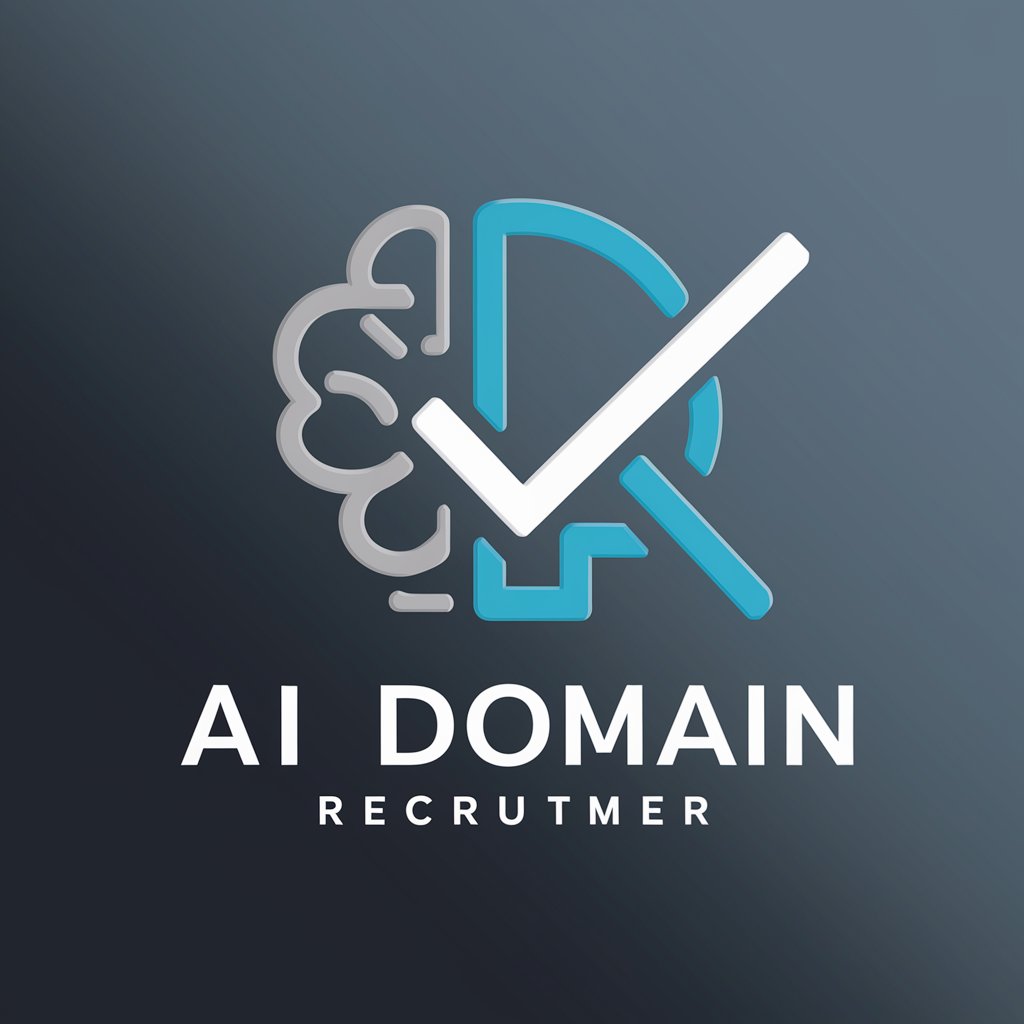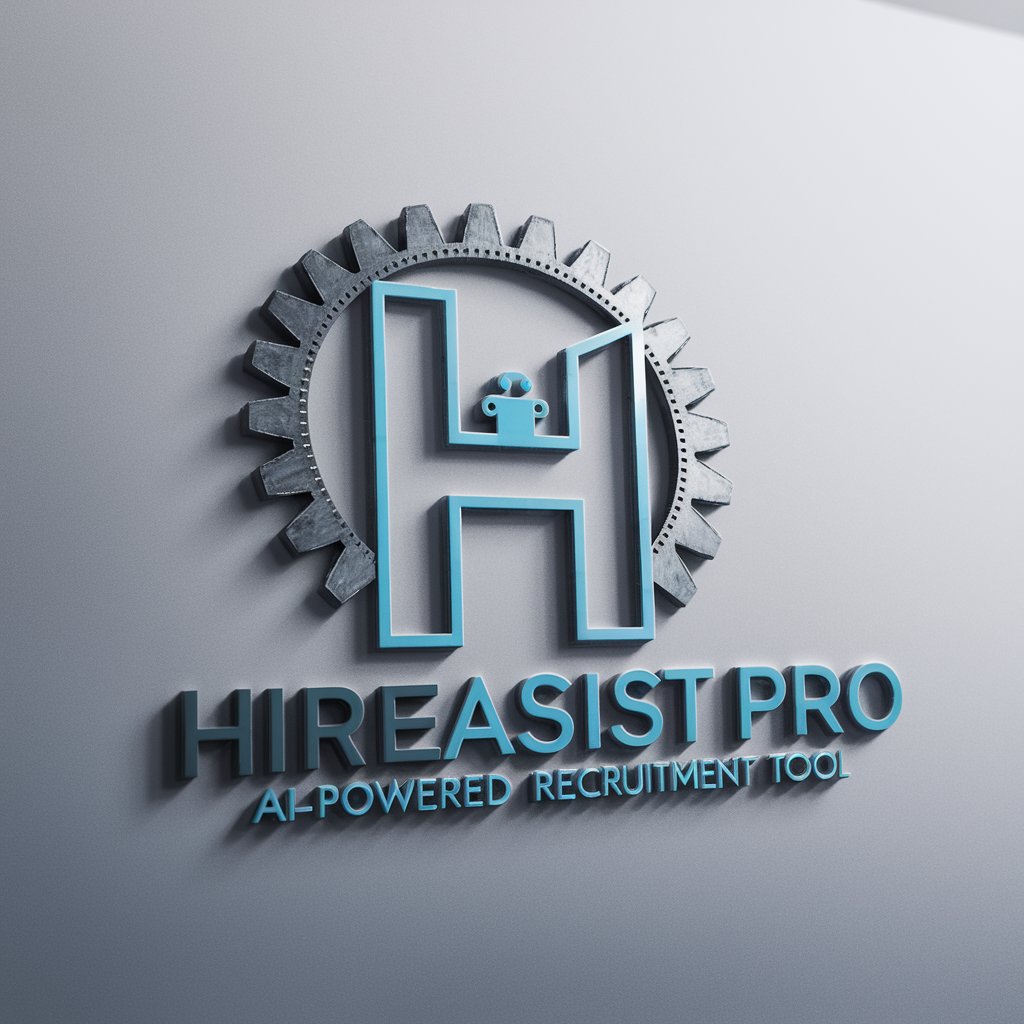6 GPTs for Role Matching Powered by AI for Free of 2026
AI GPTs for Role Matching are sophisticated tools built on Generative Pre-trained Transformers technology, tailored for tasks and topics related to matching individuals or entities with specific roles, jobs, or functions. These tools leverage the power of AI to analyze vast amounts of data, understanding nuances in job descriptions, qualifications, and candidate profiles, to facilitate precise and efficient role matching. Their relevance is underscored in today's dynamic job market and organizational environments, where they serve to bridge the gap between talent and opportunities, optimizing the recruitment process and enhancing human resource management strategies.
Top 6 GPTs for Role Matching are: AI Domain Recruiter,原体験ドリブン GPT for 就活生,Job Seeker,HireAssist Pro,Talent Agent,Hiring Helper
AI Domain Recruiter
Streamlining AI Talent Acquisition

原体験ドリブン GPT for 就活生
Navigate Your Career Path with AI Insight

Job Seeker
Empower Your Career with AI-Powered CV Insights

HireAssist Pro
Streamlining recruitment with AI precision

Talent Agent
Discover casting calls with AI-powered precision.

Hiring Helper
Streamline Hiring with AI Insight

Distinctive Capabilities of Role Matching AI
These AI GPTs tools stand out for their adaptability, offering solutions that range from basic candidate screening to intricate matching algorithms. Key features include natural language processing for understanding job requirements and candidate qualifications, learning capabilities to improve accuracy over time, technical support for integrating with HR systems, and even web searching for passive candidate sourcing. Their ability to process and analyze data in real-time, coupled with image creation for engaging job postings and data analysis for trend predictions, further distinguishes them in the role matching domain.
Who Benefits from Role Matching AI Tools
The primary beneficiaries of AI GPTs for Role Matching include HR professionals seeking efficient recruitment solutions, job boards aiming to enhance their matching algorithms, and developers looking for customizable AI tools to integrate into their platforms. These tools are also immensely beneficial for novices in HR technology, offering user-friendly interfaces and guidance, while providing advanced customization options for those with programming knowledge, thus catering to a wide spectrum of users with diverse needs and expertise levels.
Try Our other AI GPTs tools for Free
Resume Feedback
Unlock the power of AI for your resume with GPT-driven feedback tools. Tailor your resume with industry-specific advice and get ahead in your job search.
Cover Letter
Discover how AI GPTs for Cover Letter can revolutionize your job application process with customized, compelling content tailored to your professional background and the roles you aspire to.
Strategic Learning
Explore AI GPTs for Strategic Learning: Tailored AI tools designed to revolutionize strategic planning and decision-making with advanced insights and custom solutions.
Festive Crafting
Discover how AI GPTs transform festive crafting with innovative, tailored solutions for every skill level, from DIY enthusiasts to professional planners.
Holiday Cooking
Discover how AI GPTs transform holiday cooking with personalized recipes, meal planning, and interactive tutorials, making culinary creativity accessible to all.
Daily Coloring
Discover AI-powered GPT tools for Daily Coloring, designed to enhance creativity and efficiency in your coloring projects with personalized color recommendations, trend insights, and more.
Further Exploration of AI-Driven Role Matching
AI GPTs for Role Matching revolutionize how organizations connect with talent, offering scalable, efficient, and precise matching solutions. Their integration with existing systems simplifies the recruitment process, while their user-friendly interfaces ensure accessibility to users of all skill levels. The potential for customization and continuous learning allows these tools to remain relevant and effective in the ever-evolving job market.
Frequently Asked Questions
What are AI GPTs for Role Matching?
AI GPTs for Role Matching are advanced AI tools designed to automate and enhance the process of matching candidates with job roles, utilizing the capabilities of Generative Pre-trained Transformers.
How do these tools improve the recruitment process?
They streamline recruitment by automating candidate screening, improving match accuracy through natural language understanding, and reducing time and resources spent on manual matching.
Can non-technical users operate these AI tools?
Yes, these tools are designed with user-friendly interfaces that allow non-technical users to easily navigate and utilize them for role matching tasks.
What customization options are available for developers?
Developers can access APIs and programming interfaces to tailor the AI's algorithms, integrate with existing systems, and develop specialized features for unique role matching needs.
Do these tools learn and improve over time?
Yes, leveraging machine learning, these tools analyze interaction data to refine their algorithms and improve matching accuracy continuously.
How do they handle data privacy and security?
AI GPTs for Role Matching implement stringent data protection measures, including encryption and compliance with data privacy laws, to safeguard sensitive information.
Can these tools integrate with existing HR systems?
Yes, they offer technical support for integration with a wide range of HR management systems, streamlining the recruitment workflow.
What sets these AI tools apart from traditional matching methods?
Their ability to process vast amounts of data with high accuracy, adapt to evolving job markets, and provide scalable solutions makes them superior to traditional role matching methods.